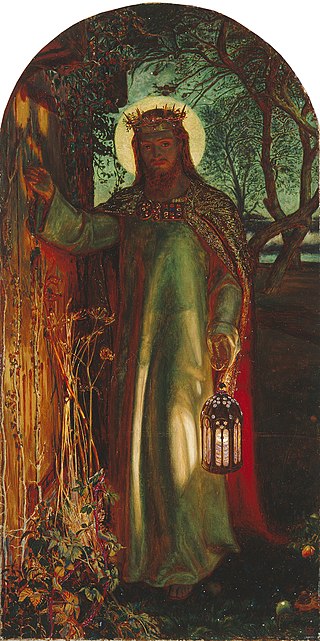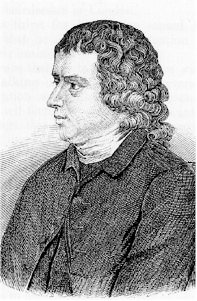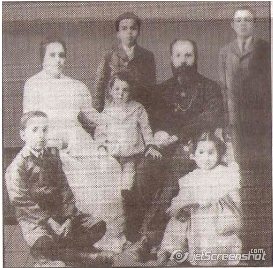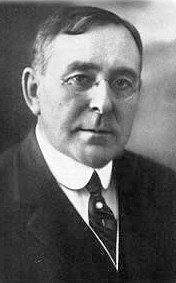
"John Brown's Body", originally known as "John Brown's Song", is a United States marching song about the abolitionist John Brown. The song was popular in the Union during the American Civil War. The song arose out of the folk hymn tradition of the American camp meeting movement of the late 18th and early 19th century. According to an 1889 account, the original John Brown lyrics were a collective effort by a group of Union soldiers who were referring both to the famous John Brown and also, humorously, to a Sergeant John Brown of their own battalion. Various other authors have published additional verses or claimed credit for originating the John Brown lyrics and tune.

The "Battle Hymn of the Republic" is an American patriotic song written by the abolitionist writer Julia Ward Howe during the American Civil War.

"O for a Thousand Tongues to Sing" is a Christian hymn written by Charles Wesley. The hymn was placed first in John Wesley's A Collection of Hymns for the People Called Methodists published in 1780. It was the first hymn in every (Wesleyan) Methodist hymnal from that time until the publication of Hymns and Psalms in 1983.

The Chaplet of the Divine Mercy, also called the Divine Mercy Chaplet, is a Catholic devotion to the Divine Mercy, based on the Christological apparitions of Jesus reported by Faustina Kowalska (1905–1938), known as "the Apostle of Mercy". She was a Polish religious sister of the Congregation of the Sisters of Our Lady of Mercy and canonized as a Catholic saint in 2000.
Ron Kenoly is an American Christian worship leader, singer, and songwriter.

The Sinner's prayer is a Christian evangelical term referring to any prayer of repentance, prayed by individuals who feel sin in their lives and have the desire to form or renew a personal relationship. This prayer is not mandatory but, for some, functions as a way to communicate with and understand their relationship with God through Jesus Christ. It is a popular prayer in evangelical circles. While some Christians see reciting the Sinner's prayer as the moment defining one's salvation, others see it as a beginning step of one's lifelong faith journey.

"I Surrender All" is a Christian hymn, with words written by American art teacher and musician Judson W. Van DeVenter (1855–1939), who subsequently became a music minister and evangelist. It was put to music by Winfield S. Weeden (1847–1908), and published in 1896.

"Michael, Row the Boat Ashore" is a traditional spiritual first noted during the American Civil War at St. Helena Island, one of the Sea Islands of South Carolina. The best-known recording was released in 1960 by the U.S. folk band The Highwaymen; that version briefly reached number-one hit status as a single.

WOW Worship: Red is the fifth installment in the WOW Worship series. It contains 34 praise and worship songs performed by top Christian artists. Twelve of the songs were newly recorded specifically for this release on Word Records. The album reached #62 on the Billboard 200 chart.

"Come Thou Fount of Every Blessing" is a Christian hymn written by the pastor and hymnodist Robert Robinson, who penned the words in the year 1758 at the age of 22.
Jaroslav Vajda was an American hymnist.
"There Is a Balm in Gilead" is a traditional African American spiritual dating back to at least the 19th century. Its refrain appears in Washington Glass's 1854 hymn "The Sinner's Cure", although the hymn is substantially based on an earlier work by John Newton. The Clark Sisters recorded a version of "Balm in Gilead" in 1986.

"The Lily of the Valley" is a Christian hymn written by William Charles Fry (1837–1882) in London for the Salvation Army. Ira D. Sankey arranged the words to the music of "The Little Old Log Cabin In The Lane" composed by Will Hays.

Volbrecht Nagel was a German missionary to the Malabar coast of India. Initially associated with the Evangelical Lutheran Church, he later joined the Open Brethren, and is remembered now as a pioneer of the Kerala Brethren movement.

The Immaculata prayer is a Traditional Catholic Marian prayer composed by Saint Maximillian Kolbe.

Sweet Exchange is the debut solo album by Heather Payne, founding member of Contemporary Christian group Point of Grace. The collection of hymns and worship songs was released on September 14, 2010, by Sandi Patty's Stylos label.
Yes, Lord! is the hymnal used by the Church of God in Christ. It was published in 1985 by the COGIC Publishing Board under the leadership of a on Bishop J.O. Patterson, Sr.

The mocking of Jesus occurred several times, after his trial and before his crucifixion according to the canonical gospels of the New Testament. It is considered part of the passion of Jesus.

Adaline Hohf Beery was an American author, newspaper and magazine editor, songbook compiler, as well as a hymnwriter. Born into a Pennsylvania Dutch community, her first job after graduating from Mount Morris College in Illinois was as a compositor in a printing office. She served as the editor of The Golden Dawn magazine and The Young Disciple child's paper; compiled a song-book, Gospel Chimes; and was employed by the Brethren Publishing House.















